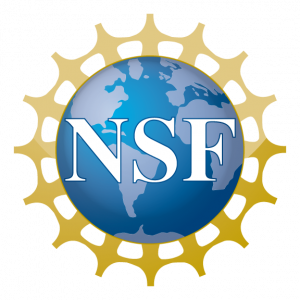Digital Transformation of Development (DToD) Fellowship
Over the past two decades, a massive amount of digital information has become available on every aspect of human existence, from income and climate to housing and health. Combining these data from the Internet of Things, and drawing on techniques for analyzing them through Artificial Intelligence/Machine Learning (AI/ML), is now considered crucial for progress in all sectors. Digital transformation is the staple of multiple sectors of industry and commerce. However, more far-reaching consequences of digital transformation for poverty alleviation, humanitarian assistance, disaster relief, and, more generally, improving outcomes for under-resourced or low-income populations are understudied. This National Science Foundation Research Traineeship (NRT) award to the University of California-Berkeley will allow us to provide interdisciplinary training for our students in design methodologies, algorithms, and problem-solving approaches to substantively analyze, ethically investigate, and develop verifiable, fair, inclusive, and useful observations from datasets and models. From these insights, students will be able to devise and deploy digital tools to accelerate growth for low-income populations in the U.S. and globally. The project anticipates training 100 master’s and doctoral students, including 28 NRT-funded trainees, from any degree program at the university that expresses interest in researching digital transformation of development (DToD). A key concern has been how the analytics and other mechanisms developed using big data benefit the populations surveyed. By ensuring that the analytic techniques and algorithms, privacy, fairness, mechanism design, and implementation of digital technology are relevant to under-served populations, the DToD traineeship also expects to increase diversity and inclusion of members of underrepresented minority groups in STEM.
The DToD program will include interdisciplinary research activities, formal coursework and curriculum building, immersive lab and field training, the creation of official DToD concentrations at both the doctoral and master’s degree levels, and career development. In addition, the program’s effectiveness in developing critical skillsets for multinational workforces will be assessed through formative evaluation. The program will rely on both interdisciplinary research faculty and development practitioners in three broad application areas: (1) Measures for Alleviating Poverty with Data, Algorithms, and AI Applied to Policy; (2) Poverty Interventions that Integrate the Natural and Built Environments in Low-Resource Settings; and (3) Improving Health and Wellbeing in Low-Income Populations. DToD will also contribute to the development of shared public datasets aligned with national strategies and priorities related to advancing AI.
The NSF Research Traineeship (NRT) Program is designed to encourage the development and implementation of bold, new, potentially transformative models for STEM graduate education training. The program is dedicated to effective training of STEM graduate students in high-priority interdisciplinary or convergent research areas through comprehensive traineeship models that are innovative, evidence-based, and aligned with changing workforce and research needs.
This award reflects NSF’s statutory mission and has been deemed worthy of support through evaluation using the Foundation’s intellectual merit and broader impacts review criteria.
 This material is based upon work supported by the National Science Foundation under Grant No. DGE-2125913. Any opinions, findings, and conclusions or recommendations expressed in this material are those of the author(s) and do not necessarily reflect the views of the National Science Foundation.
This material is based upon work supported by the National Science Foundation under Grant No. DGE-2125913. Any opinions, findings, and conclusions or recommendations expressed in this material are those of the author(s) and do not necessarily reflect the views of the National Science Foundation.

